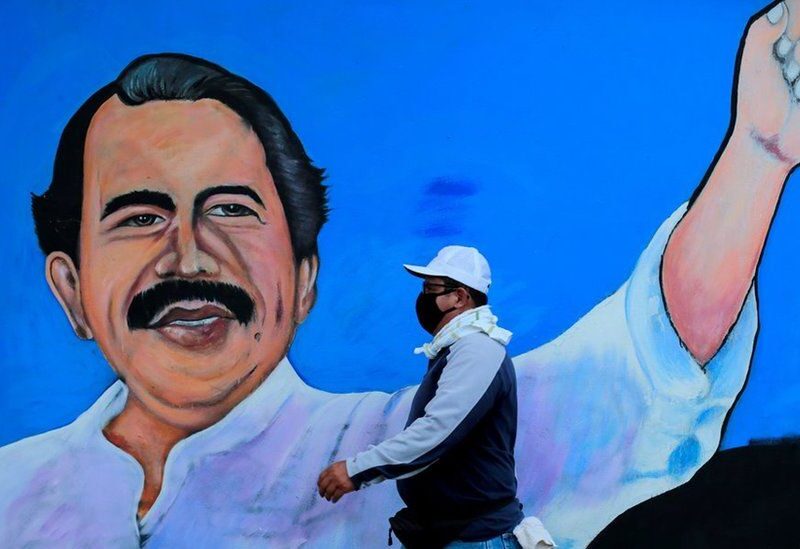
Daniel Ortega was first elected president of Nicaragua in 1984
Before he was murdered in 1978, journalist Pedro Joaquín Chamorro wrote an open letter to Nicaragua’s dictator, Anastasio Somoza Debayle. In it, he told the reviled military leader how much the people on the streets despised him and that his iron rule resembled “that of a king in children’s stories”.
Three years later, Chamorro was dead, forced off the road and gunned down by Somoza’s henchmen. Today, his daughter, the presidential candidate Cristiana Chamorro, is under house arrest by the government of Daniel Ortega, the man who helped force Somoza from power.
Her detention on money-laundering charges is part of an alarming clampdown on high-profile opponents to President Ortega and his wife, Vice-President Rosario Murillo. In all, five potential candidates for the presidential election in November 2021 have been arrested, as well as numerous journalists and businessmen, most of them under a controversial treason law.
“We’re in a period of absolute irrationality in Nicaragua,” says poet and novelist Gioconda Belli.
On Wednesday, Daniel Ortega reappeared in public for the first time since May. Looking frail, the 75-year-old delivered a typically bombastic speech which lasted for more than an hour and covered everything from North Korea’s nuclear ambitions to the recent spate of arrests.
He insists the actions were justified, and said the detainees would be “punished according to the law” for supposedly carrying out crimes against the state. “Nicaragua is the safest country in the region,” he claimed defiantly.
Not, however, if you are one of the president’s critics.
Gioconda Belli says Vice-President Murillo’s recent speeches have been equally erratic, “a mixture of religion and insults which rail constantly against ‘coup-plotters’ and Satanism. The government’s narratives exhibit extreme levels of paranoia.”
In part, the presidential couple’s fear and suspicion are rooted in the events of 2018 when protests over pension reforms quickly grew into much larger anti-government demonstrations. The authorities responded with lethal force and more than 300 people were killed, the majority of them anti-Ortega protesters.
“In 2018, they lost the streets,” says Nicaraguan sociologist Oscar René Vargas. “The repression was carried out so that people wouldn’t return to the streets again.”
The treason law and subsequent crackdown are signs the president and his wife view their rule as “fragile”, Mr Vargas argues. They have turned to the “only force they have left – an alliance between the military, the police and [radical pro-Ortega] paramilitaries”.
That is a potent and frightening prospect for any vocal critic or presidential rival. “They’re trying to decapitate the leaders of a social movement and remove any possibility of a new tsunami of social uprising”, scar René Vargas says bleakly.
Among those arrested is Dora María Téllez, a former commander with the Sandinista rebel group who led a split from Daniel Ortega in 1990 after he lost power following Nicaragua’s violent civil war.
When I last spoke to her, she was in hiding from the Ortega government. A day earlier, her home had been raided by government agents and she could barely hide her disgust at her former ally, even though they had parted ways many years earlier.
Nicaragua has “zero democracy, completely corrupted institutions, a regime which solely remains in place through repression and terror,” she said from an undisclosed location. She now faces the prospect of 15 years in prison.
The treason law states in generic terms that anyone found guilty of acting against “the independence, the sovereignty and self-determination” of Nicaragua could be designated a traitor. A deeply compromised judiciary can easily conflate legitimate criticism of the president with crimes against the state.